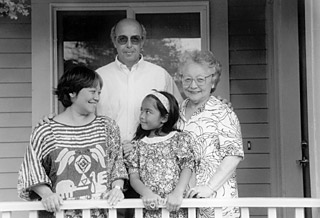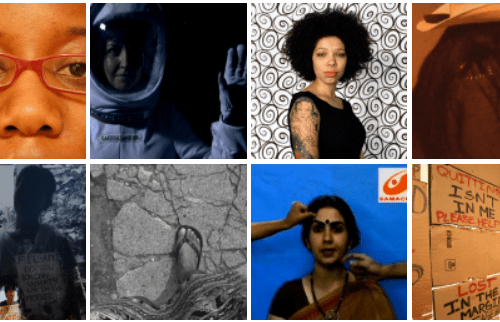Extending the Family, Part Two: Disability and Reproductive Rights
One issue I have not addressed is the disconcerting but inevitable question: What if my sister wants to have children of her own?
It is not merely a theoretical issue. Although my sister sometimes acts like a child, she is a 31-year-old adult. She has a male friend who seems to reside in the nebulous territory of more-than-a-friend, but not-quite-a-boyfriend. To my best knowledge, she has done nothing more than kiss him once or twice. I do not really know what she thinks of him; she admits to liking the kisses, but she seems very reluctant to call him her “boyfriend.” Perhaps she is simply not attracted to him. But I also cannot help but hear my mother’s voice in the way my sister talks about him. “It’s okay to be friends,” she says, and I agree; but I wonder to what extent my mother’s fears have influenced the way my sister experiences her own sexuality.
Understandably, my mother has more than the usual parental anxieties. We all do. Does my sister really understand the mechanics of sexuality and reproduction? Could she navigate this territory safely and unharmed? And were she to become pregnant, who would help care for her child?
I admit to feeling uncomfortable asking these questions. It is not easy to think about my sister’s sexuality, and it is even harder to think about her as a mother. In this I am not alone. We are reluctant, in our culture, to see disabled women as sexual. 1 In particular, we tend to regard individuals with Down syndrome as living in a suspended childlike state, permanently removed from adulthood, even though their feelings and desires may be far more developed than their ability to verbalize or analyze lived experience. We are also unwilling to think of disabled women as mothers. Disabled mothers challenge our cultural myths of motherhood, the fantasy of the nurturing, able-bodied caregiver who can do it all alone. How can a woman with a disability—a category associated with weakness, infirmity, and inadequacy—care for a child? And yet, as writer Anne Finger (Past Due: A Story of Disability, Pregnancy, and Birth) and the writers in the collection Bigger Than the Sky: Disabled Women on Parenting demonstrate, plenty of disabled women have fought against societal prejudices and obstacles for the right to raise children.
Historically, American society has denied disabled women their sexual and reproductive rights. Many states have had laws forbidding people with epilepsy, mental retardation, and psychiatric disabilities from marrying. 2 Medical professionals have encouraged (or forced) women with disabilities to be sterilized, a practice that continues. The fears driving these recommendations are multiple: that women with disabilities cannot care for their own children, or might even harm them; that these children might become burdens to the state or to their families; that it is not fair to the children, who would not receive a “normal” upbringing. Our cultural anxieties are also driven by the worry that the children might be disabled—a fear that is groundless when the disability in question is not hereditary, as with Down syndrome, but one that nevertheless pervades our discussions.
Disabled feminists have taken up the charge of mainstream feminism, making important headway in the campaign for the sexual and reproductive rights of women with disabilities. As a feminist—indeed, as a human being—I fully support my sister’s sexual and reproductive rights. But, at the same time, I wonder how the domain of caring, to hearken back to Kittay, informs my sister’s claims to equality. She lives, after all, in an interdependent network of people. She makes most of her decisions within the context of this extended family; and should she choose to become a mother, we, too, would bear responsibilities. Does that mean that we also have rights? Or does the language of equality and justice, as crucial as it is, obstruct some of the issues at stake: my sister’s ability to care for herself and for another human life, and her family’s ability to care for her and to enable her to care for a baby?
The issue raised by my sister’s hypothetical life as a mother—her need for assistance from those around her—is shared by all mothers, to varying degrees. Pre- and postnatal care, equal access to quality day-care and nursery schools, excellent public schools, governmental programs to offset the financial burdens of mothering: These would help move us past the rhetoric of supporting families toward structures that would truly nurture all mothers and their families.
- See Adrienne Asch and Michelle Fine. Also see Rosemarie Garland-Thomson’s discussion of Playboy model Ellen Stohl and the Barbie doll Share-a-Smile Becky in “Integrating Disability, Transforming Feminist Theory.”[↑]
- Asch and Fine.[↑]



